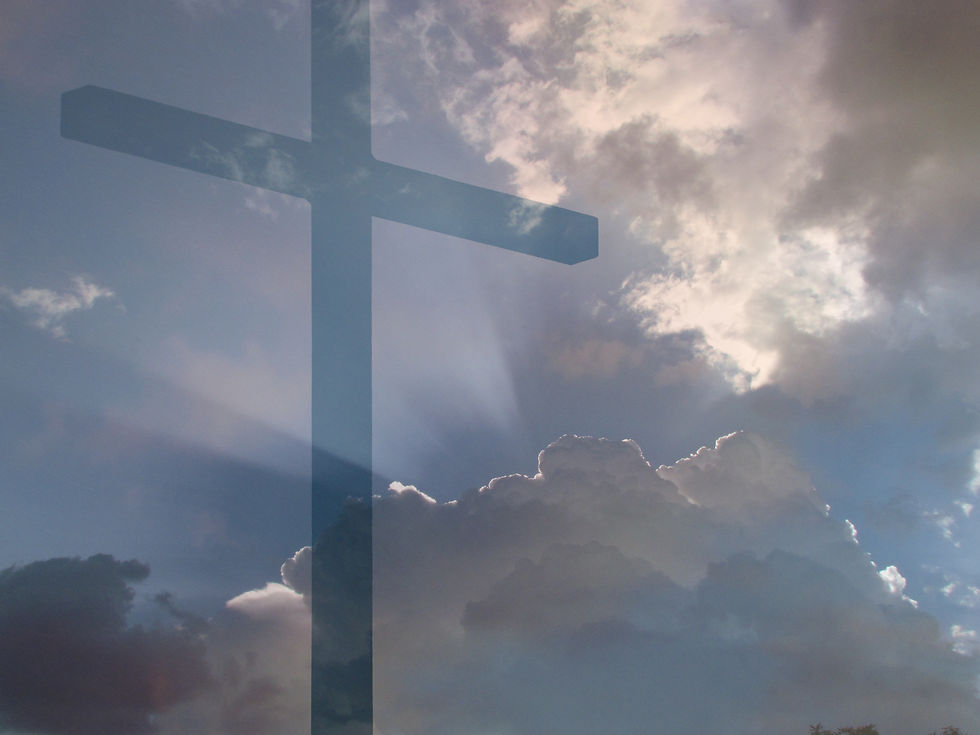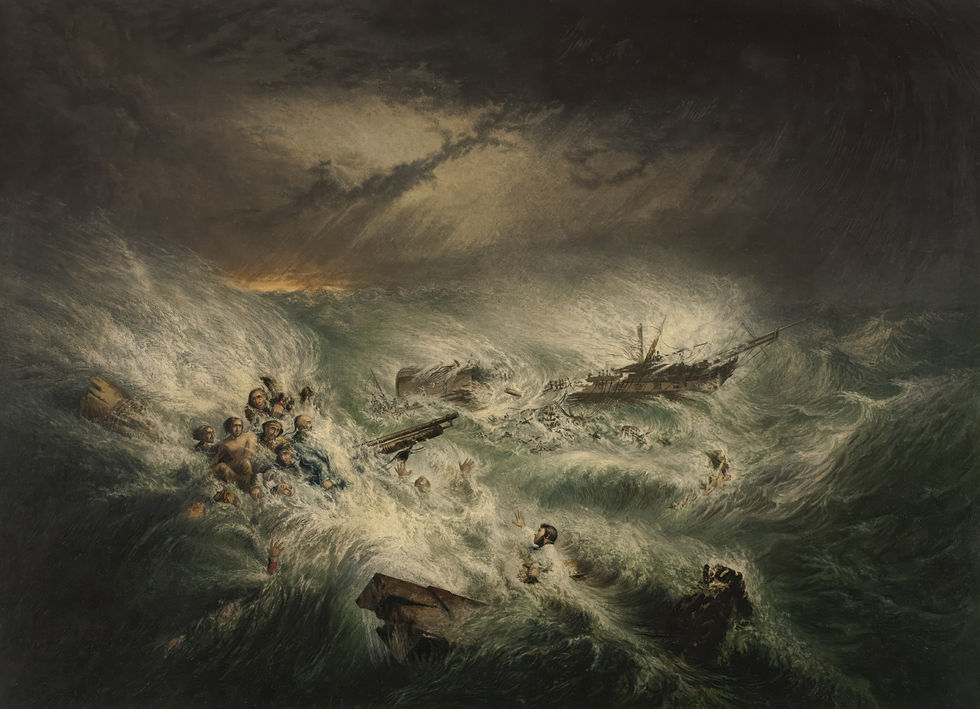The Perfection of Pain: Joseph's Triumph
- cjoywarner

- Jul 27, 2025
- 5 min read
Updated: Aug 2, 2025

Imagine a conversation between the Apostle Paul and Joseph in heaven where they discuss Romans 8:28, "And we know that all things work together for good to those who love God, to those who are the called according to His purpose." And what is the context of this precious verse? Paul says a few sentences earlier, "For I consider that the sufferings of this present time are not worthy to be compared with the glory which shall be revealed in us" (Romans 8:18). And he closes this triumphant section saying, "What then shall we say to these things? If God be for us, who can be against us? Who shall separate us from the love of Christ? Shall tribulation, or distress, or persecution, or famine, or nakedness, or peril, or sword? Yet in all these things we are more than conquerors through Him who loved us" (Romans 8:31, 35, 37). And why is this so? "For I am persuaded that neither death nor life, nor angels nor principalities nor powers, nor things present nor things to come, nor height nor depth, nor any other created thing, shall be able to separate us from the love of God which is in Christ Jesus our Lord" (Romans 8:38-39).
And Joseph would be nodding and glowing to everything Paul says in Romans 8 because he lived almost every last word. And he knows that the ultimate purpose of God isn't merely that all things work together for good--not only meaning for "good" but "for good"--but that His children will behold as in a mirror the glory of the Lord so that we may be "changed into the same image from glory to glory, even as by the Spirit of the Lord" (II Corinthians 4:18). Joseph was indeed transformed into "the same image from glory to glory," and he is perhaps the finest example in the entire Old Testament of a type of Christ. Why is this so? Not merely because, like Jesus, he learned obedience through the things that he suffered (Hebrews 5:8) in the Providence of pain, and not even because he fastened his eyes on the joy before him, despising the shame (Hebrews 12:2), but because he learned how to forgive. Joseph had a lot to forgive, and if anyone had a right to become bitter or vengeful, he did.
But just as he exudes graciousness from the first moment he reveals himself to his brothers (Genesis 45:7-8), showing his trust in God's sovereign purpose to which he was "the called," he reiterates that depth of forgiveness to his brothers after their father Jacob dies and is buried in Canaan. Joseph's brothers quite possibly fabricate a little story, sending to him the message that Jacob had requested before his death that Joseph forgive the evil his brothers did to him. For the eighth time in the fourteen chapters narrating the story of Joseph, the text reads that "Joseph wept" because of his brothers. Why did he weep? He wept, not for himself, but for the glory of their repentance which he is all too happy to forgive. And to this weeping love his brothers fall down and offer themselves in abject surrender to be Joseph's servants (Genesis 50:18). Is there a heart more tender than Joseph's? Even when he casts his little play mirroring back to his brothers their own thievery and betrayal, his purposes, like his Heavenly Father's, are for their good.
And to all his pain, Joseph indeed sees a purpose, "Do not be afraid, for am I in the place of God? But as for you, you meant evil against me; but God meant it for good, in order to bring it about as it is this day, to save many people alive" (Genesis 50:20). Joseph's forgiveness to his brothers sounds so much like Jesus' prayer on the Cross, "Father, forgive them, for they know not what they do" (Luke 23:34). If God be for us, who can be against us? And we can see the Apostle Paul beaming on the countenance of Joseph, who needs no royal robe or medal of honor to crown his Christlike spirit, for he exudes the love of God. This Christlikeness is the perfection of Joseph's pain, for Joseph conquered, not by vengeance, but by love.
Jacob's blessing to Joseph before he dies speaks not only some of the greatest prophecy but also some of the loftiest poetry of Scripture, as if the suffering of his own soul is distilled into eternal honor and poured like oil running over his son's head (Genesis 49:22-26). Even in this, we see Joseph as a type of Christ receiving for his suffering the blessing of his beloved father:
Joseph is a fruitful bough, a fruitful bough by a well; his branches run over the wall. The archers
have bitterly grieved him, shot at him and hated him. But his bow remained in strength, and the
arms of his hands were made strong by the hands of the Mighty God of Jacob (from there is the
Shepherd, the Stone of Israel), by the God of your father who will help you, and by the Almighty
who will bless you with blessings of heaven above, blessings of the deep that lies beneath . . . The
blessings of your father have excelled the blessings of my ancestors, up to the utmost bound of the
everlasting hills. They shall be on the head of Joseph, and on the crown of the head of him who
was separate from his brothers (Genesis 49:22-26).
Joseph's separation from his brothers was in itself his anointing to the purpose of God and enabled him to see beyond the pain of today the perfection of triumph in his Lord's purpose.
In a world of "victims," where everyone has a "story," we would do well to take notes from Joseph and from Paul on the love of God which makes us more than conquerors through Christ. Joseph was a victor, perfected in the school of pain, because he learned that forgiveness is the only way we can be like Christ and is the only way to break free from the chains our enemies would place around our neck. We hear much about Joseph as a type of Christ, and in the book of Genesis in which we trace the lineage of the godly Seed promised since the fall of Adam and Eve, how wonderful that this narrative closes not only with a promise of this Seed but with a picture of what the Savior will be! Joseph even has his own "resurrection" of sorts when by faith on his deathbed he requests that his bones be removed from Egypt and transported to Canaan--that land he left so long ago for his Savior's purpose to "save many people alive" (Genesis 50:20). This is Joseph's triumph--his last statement of faith in his people's ultimate deliverance, and is the reason he makes it into Hebrews' Hall of Faith (Hebrews 11:22).



Yes- Joseph had much to forgive, yet he allowed God to use his pain to mold him into a noble leader who sought the good of others. I had never thought of his bones being moved as a type of resurrection. That’s a very interesting thought!